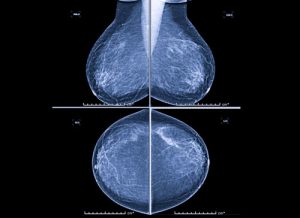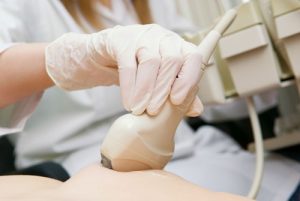As ladies grow older, the risk of breast cancer increases. There are risk factors such as genetic components that cannot be modified but adopting a healthy lifestyle is one way you can lower the risk of getting breast cancer. For ladies who have 3 or more children who were all breastfed, your risk of breast cancer also decreases.
However, this does not guarantee that you would not get breast cancer at all. Dr Anthony Tang from The Breast Clinic recommends getting regular breast screenings to check on your breast health. Hear from him on what a breast cancer screening would encompass.

What is Breast Screening?
Breast screening typically comprises of a mammogram and if required, an ultrasound of the breast as well. Breast screening is done so that breast cancer can be detected early. The earlier it is detected, the earlier treatment can start, resulting in a better long-term outcome. Regular breast cancer screening is very important as breast cancer has no symptoms such as lumps or breast pain, especially in the early stages.
Therefore, from the age of 40, all ladies should get a mammogram done every year. From the age of 50, ladies should get a mammogram done once every 2 years.
What is a Mammogram

How a mammogram scan typically looks like
A mammogram is basically an x-ray of your breast. Your breast will be positioned between 2 plates on the mammogram machine. Your breast will then get compressed between the 2 plates and the x-ray equipment takes a few pictures. The breast is positioned in different angles to get a complete picture of the breast.
Many ladies are usually concerned about the radiation from the mammogram but Dr Tang confirms that the radiation is minimal and not a cause for concern.
What is a Breast Ultrasound

A doctor performing an ultrasound scan
You might have heard of ultrasounds being used for pregnant women but it is commonly used during breast screenings too. The doctor will use a different probe for a breast ultrasound. First, the doctor will apply a gel on the probe and then gently move the probe over the entire area of the breast to check for the possibility of lumps.
An ultrasound scan typically produces clear images of all sorts of lumps that can be found in the breast. Lumps are irregular in shape and are usually benign (not dangerous).
Differences Between Mammograms and Breast Ultrasounds
A mammogram can pick up micro-calcifications which are like fine white dots on the scan. This cannot be detected using a breast ultrasound scan. The earliest sign that a lady has early stage breast cancer is when these micro-calcifications are grouped together.
Since an ultrasound cannot pick up micro-calcifications in the breast, it cannot be used to substitute a mammogram. Depending on your doctor’s recommendation, you might be required to do both an ultrasound and mammogram.
Why Breast Screening is Important
For all ladies, whether you feel any pain, lump or discomfort (like an itch or rash) OR NOT in your breast, you should still go for regular breast screenings, even if you feel reluctant. Ladies who are above 40 years old should get their breast screening done once a year and ladies who are above 50 years old should get their breast screening done once every 2 years.



